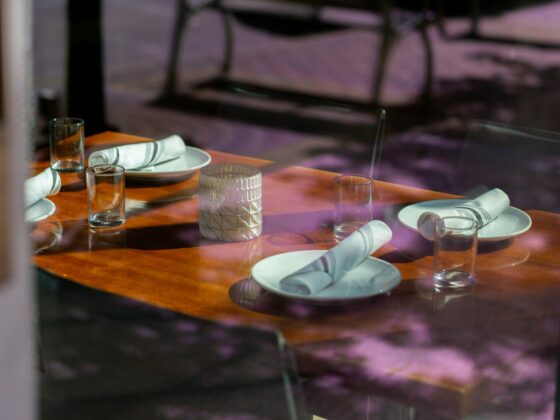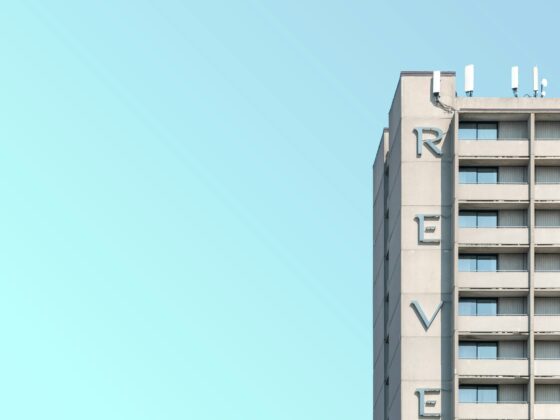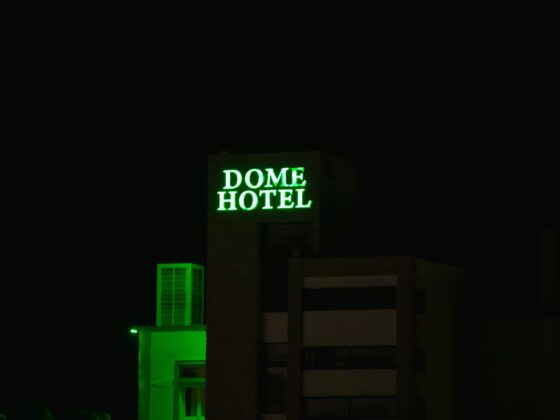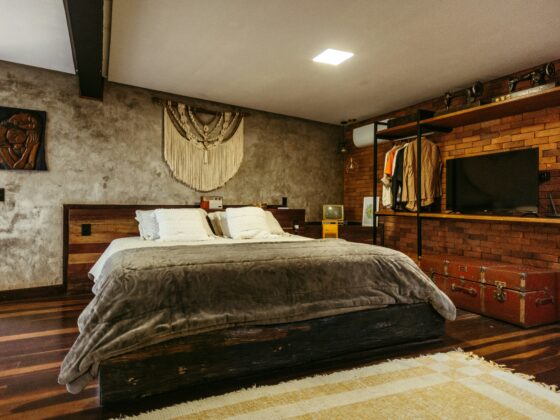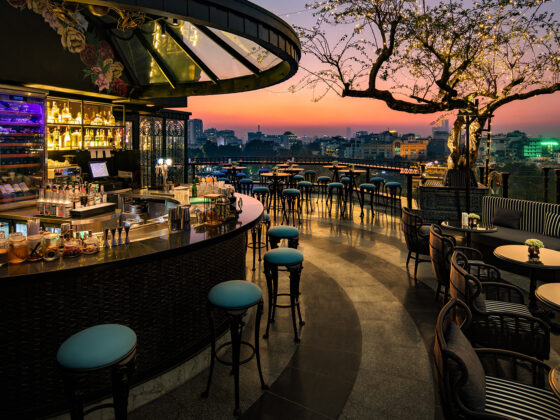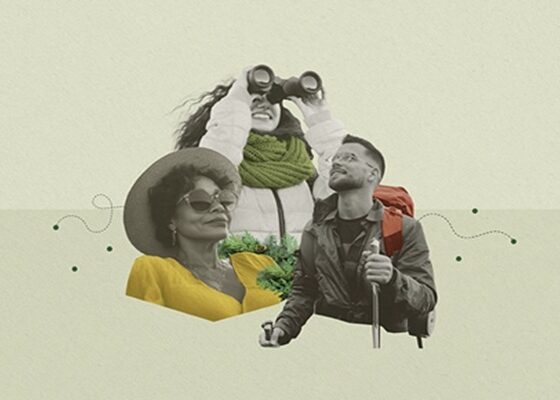Josiah: You’re known across the hospitality industry for doing so much. But I’m curious for Michael, young Michael, back in the day, was there an experience early in your life where you received or experienced hospitality that was memorable for you? And if so, I’d love to hear that story.
Michael: Yeah, I think even it is a memory just that triggered me to go into the business. So close friends of my parents was the architect of the Sonesta Hotel in Amsterdam. They had a opening weekend and invited my parents to join as it was a birthday weekend of my mom. They didn’t want to, you know, leave the kids and they said, well, why don’t you bring the kids? And I think I must’ve been 10 or 11 and went to an opening weekend of the Amsterdam Sonesta Hotel back then, which is now a Renaissance hotel. And I was sold. I loved the business. I was intrigued. And on Sunday morning, we ended up sitting with a very kind American couple at brunch. And in my then extremely broken English, I told them that I was going to be a hotelier and I was going to be working for a company. And little did I know that was Roger Sonneman, who was owner and CEO and that stuff. And actually I worked for 18 years, uh, you know, my first 18 years after graduating university for them. So it’s a funny story, but that company started in the industry. It was very special.
Josiah: Can you tell me more about that? Because it’s one thing to appreciate a great hotel or hospitality experience. It’s another thing to work in the business. You mentioned wanting to be a hotelier at a young age. What was it about that? Why did you want to work in the business of hospitality?
Michael: You know, sometimes when you like something, it’s difficult to define why you like it. But it was just a whole ambience, the whole, you know, it’s big theater that we do in the hospitality business. It’s an experience. And being in the hotel and in a brand new hotel with opening functions and all kinds of great experiences, it just intrigued me. And I said, listen, this is really what I want to do. And I don’t think you fully understand at 10 or 11 what that means and what a career in the industry means and what type of education you need for it and how to grow and find your niche within that business. Obviously that was not there, but it was just spark. You know, I looked at it and I marveled at it and I went like, wow, that’s what I need to do. So it was more of that than now looking back, you know, fully realizing what was the industry all about. And did I make a wise choice back then?
Josiah: Let’s fast forward to the present day. You are doing so much still in the world of hospitality advising so many. Why do you still work in hospitality? Is that spark sort of remained over the years?
Michael: Yeah, I think that if you fall in love with the hospitality business, it’s very difficult to fall out of love because there’s just so much going on. But I do believe that over time, those early years with Sonesta, I learned very much what it is to have values and culture in an organization and ultimately what type of stability that gives for guest and employee satisfaction. So the stability and the core of your success. But later, you know, fell in love with technology. I got into and learned how to manage hotels for single hotels, then multiple hotels, opened hotels, converted hotels, did resorts, you know, more the leisure part, but also city hotels, group convention hotels. So you get to see and know everything. And as there are hotels around the world, we end up working in many cultures and many destinations. And it just enriches you. So I would say falling in love and rolling into the business is one. I haven’t figured out how to get out of it because I like it. I love it.
Josiah: I am always fascinated by the moments in my guest’s career around where things change, right? Because I feel like it can feel like you work away at a job or in a role, but there’s often these moments, and I’m curious for you if there were some of these inflection points or pivotal moments throughout your career, maybe starting with Sinesta. During your time there, was there a moment that stands out as this was a big new step for me?
Michael: Yes, I think that when I worked in Boston, I was rooms division manager of the Sonesta Hotel there in Cambridge. Back then, Jules Seaberg did a big project with CLS computers and with Dave Berkus. It was introducing artificial intelligence into the equation. And what year was this? I’m talking about mid 80s. 80s, AI in the 80s. This is great. I have not heard about this before. No, not AI. Well, yeah, it was artificial intelligence, but it was more like query machines, you know, getting early stages into the commercial side of revenue systems. So, you know, we dabbled into that and I was fortunate enough to sit on those task force. And that sparked with me a tremendous interest in the technology side. And, you know, Dave Berkus is such an incredible, humble leader and somebody that shares his knowledge and sparks your interest. And so working on these projects and also getting into HFTP at that time, you know, I started to learn what the possibilities were with technology. I really never let it go and have spent, you know, a lot of my time, as you know, in, you know, the HFTP association. become active, you know, also in the leadership. So I did the global board and was on the executive board. So I was president one year of HFTP. And due to COVID, we even had an extra year. So I think I served nine years on the board. And you just get the opportunity to see how technology enables better personalized service. and how technology has held us back also in having a better dialogue or knowledge about our guests. In the last couple of years, that getting, you know, a boost and hotels and hotel companies being able to finally catch up with where maybe the airlines and the banks and the retails are in a digital conversation with their clients. And hotels are getting better with technology to centralize knowledge and be able to serve that so that the staff really can better interact with the guests and have important information at their fingertips. So that was really a defining moment.
Josiah: That’s great. And there’s so much potential there. I want to get into some of the details of that. You know, in our present day, as we’re recording this and people listening to this in the future, technology will continue to evolve. And I’m very interested in being at the right place at the right time. I wonder if you could describe or explain a little bit of how did you get onto this task force at Sonesta? Because it feels like that started a lot for you in the world of technology and hospitality. How’d you get onto the task force?
Michael: Well, I mean, they needed to have a beta site and the hotel became the beta site and somebody needed, you know, on-prem to be able to run it and needed to be part of the task force. So I guess I was in the right seat at the right time and lucky enough to dabble into it. It was amazing. You said yes and you participated, right? Oh yeah, of course. I mean, there was not a second of hesitation.
Josiah: You’ve been an advocate for using technology better in hospitality for some time, all the way back to that task force at Synesta. Was there another moment in your career where you feel like it really opened your eyes on the power of technology? Or do you feel like it’s been more incremental learning as you go? Was there another big moment like that task force at Synesta?
Michael: You know, big shout out to HFTP because it is an association of technology professionals, also financial, of course, but technology professionals that are willing to share their knowledge. And having become active in HFTP, you all of a sudden get into a world of like-minded people that are willing to share their knowledge, their experience, you know, they maybe have the same aspirations. You all of a sudden find very vertile grounds in order to become innovative. And that’s what I’ve been able to do with HFTP.
Josiah: I’m curious if we zoom out from the day-to-day of the work of hospitality, I’m curious what you see as the most important issues facing society now that hotels or hospitality businesses might be in a position to address.
Michael: Well, I think that, unfortunately, our natural tendency is to look at the differences amongst us. And if you focus on what you have in common, the world will be a little bit better, I guess. Having lived internationally, traveled all over, been in different cultures, I believe of bringing together rather than looking at what differences we have. And that I think has really made a huge difference. So there is no magic to it. I think it’s also an attitude. You know, somebody that taught me a lot and was a real mentor, Michael Johnson, he told me very early on in life, if you open the curtains in the morning, you look outside and let the weather outside or the circumstances outside dictate how you feel, you have a problem. If it rains, then it rains on you. You open the curtains and you say, I’m ready to attack the world. Oh, it rains. Let me grab my umbrella or my rain gear. Then you have a head start. So it’s attitude also.
Josiah: It’s interesting. You’ve shared in our conversation a few pieces of advice you’ve received from others. Another person that submitted a question for our conversation was David Chestler, who wanted to hear from your perspective, what would Michael tell his younger self? So some advice from you for younger you, what would you do if you go back in time?
Michael: That’s interesting. I think that it took me a long time to realize how privileged I was in working for certain organizations and certain people. and my education to see how far I was. And it was only in my mid 40s that I was privileged enough with the partners to start citizenM. Maybe I could have done something 10, 15 years earlier and maybe not with the same success or with the same knowledge and experience, but I could have done that maybe a little bit earlier, but circumstances are what they are. And I think that every step of the way you learn, I think that dealing and learning how to deal with adversity, you know, don’t let anybody take you down. I mean, it’s up to you to really put energy into anything and everything that you do with the right energy. And that is something that I’ve learned and I use right now. But early on my career, I could have used some of that, I guess, some of that knowledge. But it’s called experience, so it’s difficult.
Josiah: Yeah. I’m curious for you, are there any practices or habits that you find help you do that? You mentioned not letting anyone get you down or staying like full of energy. How do you recharge and take care of yourself so that you can show up in that way?
Michael: Well, I think that goes back to, you know, do you feel comfortable in a hotel or not? Do you feel like the environment is providing you energy because we all need to get energized? So if you create a culture and that culture starts to live by itself or gets institutionalized, then that’s pretty cool. So yesterday I walked into one of our hotels and the great engineer that has been with us actually since that hotel got constructed over 15, 16 years. He saw me and he all teared up and he had not seen me in four years or so and ran over to hug me like he was the last person he was going to see on earth. And yeah, that is so special. And I think that that’s what it’s all about. We want to have a sense of belonging and I think that that’s also how you try to maintain success of an organization, provide something that people want to belong to, because then it becomes so much easier the journey.
Josiah: It’s a great question for all of our listeners to think about for themselves, but also as leaders, are you creating an environment that people want to belong to?

